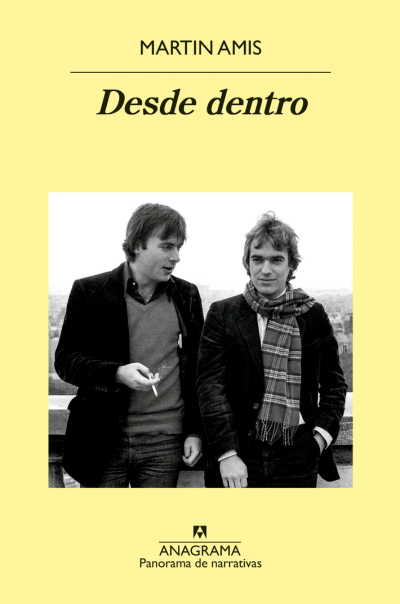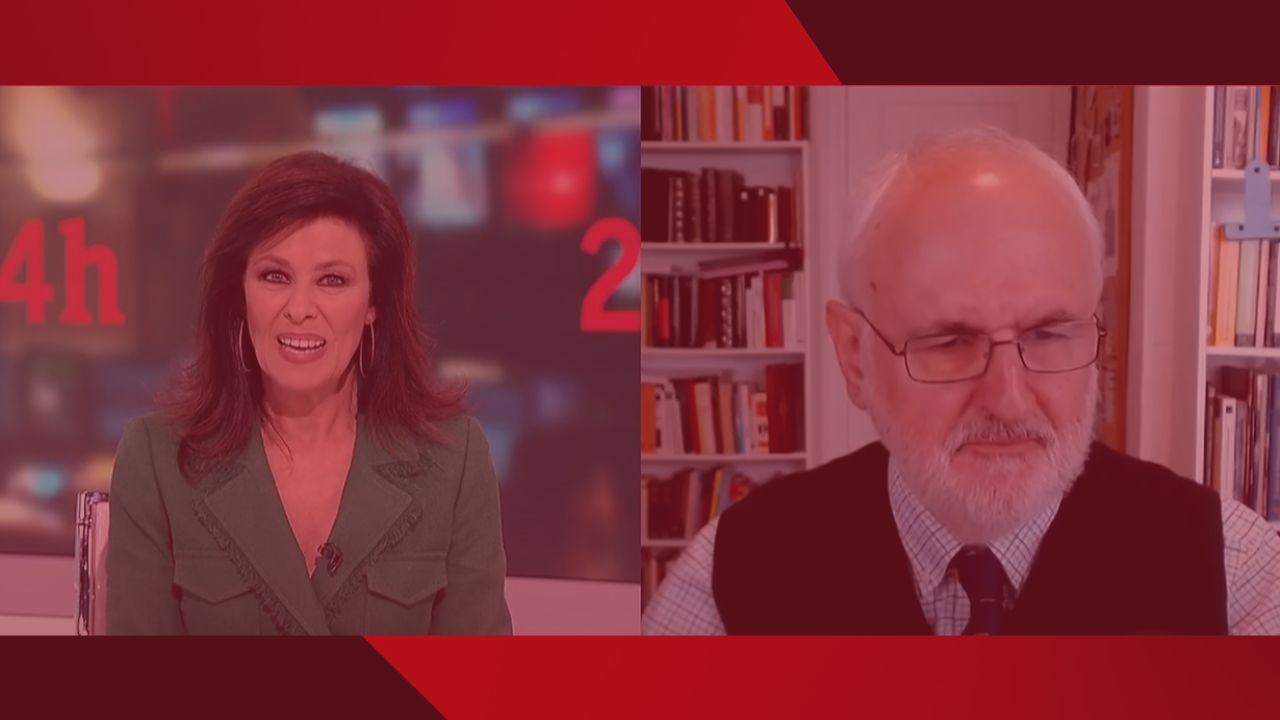In 1477, King Ferdinand the Catholic was appointed Lord of Biscay by the people of Guernica and swore to uphold the regional laws of the Basque people. This desire to integrate with the Kingdom of Castile was born from the people of Biscay, who later participated in the great historical feats of the Spanish Empire. This fact has gone unnoticed by Basque nationalism, since any policy of this nature builds a biased story.
The problem of nationalism is not the end it pursues, but how it justifies and operates to achieve it. The oath of Ferdinand the Catholic and the fidelity of the Biscayan people is a fact, among many others, buried to make a vision of history prevails. The nationalist ideology consists primarily of a philosophy of history, a way of understanding its events: the existence of an eternal and original nation that, independently of the political action or the will of a people, always prevails. In other words, although the Basque people have wanted to integrate into the Kingdom of Castile and, later, into that of Spain, the nationalist will always argue that, under that historical circumstance, an antagonistic nation of the Spanish underlies. Therefore, any political will that disagrees with what the nationalist considers ‘the Basque’ is qualified as a betrayal. And, on the contrary, every political decision that fits his discourse is part of the true history of that nation.
According to this, it is perfectly understandable that the interpretation of Sabino Arana, father of Basque nationalism, on the origin of the degeneration of Biscay goes back to this symbolic date, when the traitors (the Biscayans) submitted to the power of King Ferdinand. In Arana’s opinion, the Basque people introduced the lordly form (the aristocracy) under the influence of the Spaniards, a fateful institution completely alien to the political organization of Biscay. Therefore, no nationalist will accept that, thanks to this integration, which was carried out by their own desire, these people were able to participate very actively in the development of the empire.
Alfredo Cruz Prados, in his book Nationalism, an Ideology, points out that the law that governs history is the nation, for being timeless, for transcending history, for remaining unaltered through the centuries. One of the most repeated arguments in the current debate is the existence of a spirit, of an essence of the Basque or Catalan. This idea of the nation as a natural society, as a pre-existing collective reality, responds to a vision introduced by Romanticism, according to which history is essentially the history of nations, national history. For this reason, it is not observed in accordance with the facts, but under the perspective of the nationalist discourse, which measures every act as national or not, and establishes a dichotomy that governs what is true or false.
If history is national, then politics must be adapted to the needs of that supposedly preconfigured nation, and thus become an instrument for its construction. José Luis González Quirós, in his book An Apology of a Patriotism, warns that «the territorial problems that affect the supposed identity of any political community cannot be treated as ontological questions regarding supposed historical or political essences, but as conflicts between people that must be resolved democratically». What provokes this political essentialism is precisely the denial of human freedom, the freedom to embark on new political projects.
If politics is an instrument, it is because, as Cruz Prados assures, the past underpins the validity and legitimacy of decisions. It stands as a guideline for how the future should be: «In the past is the reason for the future». If two peoples have declared themselves to be enemies (or at least, supposedly), they must continue to be so because of the past. Therefore, the only way Basque or Catalan nationalism can survive is to perpetuate itself as an enemy of the Spanish. If we look closely, there is only the Basque against the Spanish, without distinguishing the great variety of nuances that have occurred throughout history. Nationalism does not contemplate the possibility of carrying out a new political project that overcomes difference, because the future is determined by the past, because its justification is radically based on it. This constant enmity leads nationalism to value the autochthonous for the simple fact of being autochthonous and to reject the foreign for the same reason: «The incorporation of foreign elements is not appreciated as an enrichment of the own, but as a denaturalization of the autochthonous, as a corruption of the national».
However, the idea that a nation exists as an immutable essence is a fallacy. At its core, it is created on the basis of nationalist ideology. Cruz Prados believes that «the nationalist defense of a supposed cultural identity and community is undertaken in a counterfactual way, that is to say, it takes place when the traits that are the basis of that identity and to which one appeals in order to claim its existence, have already almost completely disappeared». This is the case of Basque nationalism and its appeal to the Basque language as a sign of identity. Sabino Arana himself acknowledges that this language was relegated to small rural centers. The objective, therefore, is to nationalize through language all spheres of social life, to make the language a national reality. This sums up the political project that Catalonia is currently undertaking through historical manipulation and the imposition of language.
With all this, the novelty of the matter does not lie in the theoretical contradictions and shortcomings of nationalism, but in the form it takes today. The self-determination of the Basque people constitutes the first point that Bildu develops in its party programme. However, in the last one, entitled Against Racism and Xenophobia, they advocate «an active defence of the inclusive concept of universal citizenship, which implies that people are subjects of rights and responsibilities based on their human condition. Consequently, they cannot be deprived of any of these rights on the basis of their place of origin, race, sex, ethnicity or nationality». This principle is very surprising, as it is deeply inconsistent. On the one hand, Bildu defines what Euskal Herria is and who is properly Basque. On the other hand, he states that human beings are not determined by their nationality. Basically, it is a strategic way for the party to adapt to the postulates of modern liberalism.
Cosmopolitanism, first developed by the Stoics, recognizes that all human beings are part of a universal community that goes beyond national borders. This concept was later developed, in Modernity, by philosophers such as Grotius, Locke or Kant, whose theses gave rise to the Universal Declaration of Human Rights, international institutions and global treaties. Cosmopolitanism has an a priori anthropological vision, that is, it only occurs under ideal conditions. In other words, the human being is understood in an abstract way, which gives rise to concepts such as «universal citizen» or «universal rights», whose only link is found in the condition of being human. The remaining links, such as culture, language, history or religion, would be subordinated to a second level, so that they would not imply any obstacle to the constitution of a global society.
However, we are not the universal concept of human being, detached from the space, society, family, language, or culture in which we are involved. To pretend to talk about the human being in general is a meaningless abstraction. Much of what defines us depends on what we have received, on the identity of the country in which we were born. In fact, the human cannot be understood without the political, however much we try to generalize a universal form of humanity. What is truly human is to recognize ourselves in society, to understand the legacy of our ancestors, and to take responsibility for it in the future. González Quirós points this out: «Man is a natural being, but he is, above all, a moral being, someone who inherits a certain vision of reality, of his insertion in the world and of the meaning of life, which goes far beyond what would be given by the mere indications of nature orphaned by social protection».
One of the features of nationalism is that it strategically adapts to historical needs in order to continue operating
Bildu, in his program, mixes his nationalist theory with cosmopolitanism. However, this combination proves to be impossible when we realize that if a state treats any «universal citizen» in the same way and does not give its own people something different from the others, from the foreigners, then what adhesion will a citizen have with his state, when for him this state means nothing more than for the rest? So, where does the decisive point lie, who is Basque and who is not, or who is human? Because if what is decisive is who is human, then the Basque condition is irrelevant, it does not serve as a political criterion. Deep down, Bildu comes to say that what can be given to a Basque is identical to what can be given to any human being. Therefore, there is no point in creating a state for Basques if they are going to be granted neither more nor less than what is subsequently granted to any other.
Why does nationalism cling to its own contradiction? Because one of its characteristics consists in the strategic definition. According to historical conditions, it adapts to the needs in order to continue operating. That is why Bildu now tries to commune with cosmopolitan and international thinking, even if this is totally inconsistent. As Cruz Prados points out, Basque nationalism is a clear example of adaptability. Arana thought that Catholicism was the most essential and valuable feature of Basque identity. Pío Baroja believed, on the contrary, that the authentic one was the pagan Vasconia, which had undergone a process of Romanization and Christianization. The anti-Christian theses were consolidated during the Franco dictatorship, since, if Francoism was defined as a Catholic State, this religion ceased to represent a decisive aspect in defining the Basque Country, which needed differentiating elements. That is why, today, the creed is not essential to delimit the Basque, although it was originally.
With this entire DNA, never before have nationalisms been so decisive in the configuration of a government in Spain. The supporters of unity have not been able to unravel these contradictions and, on many occasions, have defended their position in nationalist terms, favoring precisely those who wanted to delegitimize. What we should bear in mind is that we do not live in a universal political structure that is alien to national borders, but that these are not essentials that transcend historical particularities.






